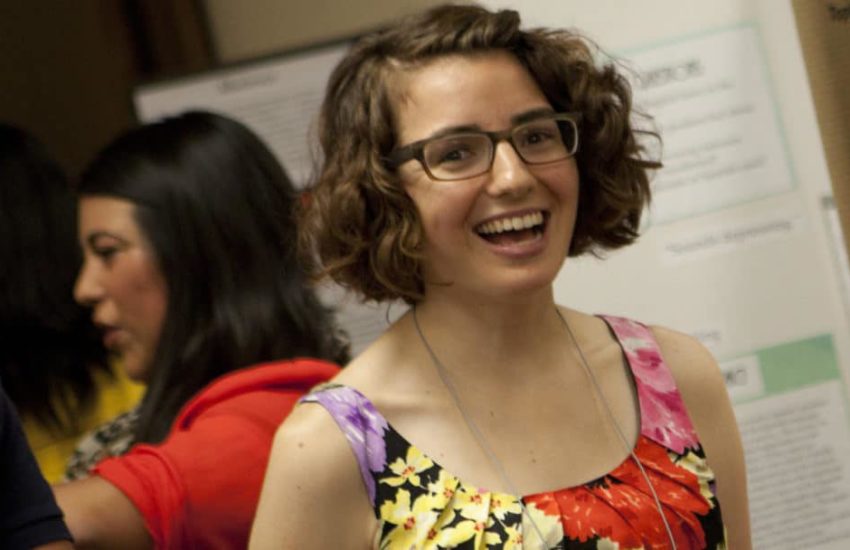Sarah Hughes, a 2012 graduate of the MA in WRD program, was recently accepted into the Joint Program in English and Education at the University of Michigan! Ultimately, Sarah’s goal is to attain a tenure-track faculty position in Composition & Rhetoric. WRD was able to catch up with Sarah and learn more about the PhD program she’ll be starting in Fall 2017 as well as her research plans. Congrats, Sarah!
Can you tell us about the Joint Program in English and Education at Michigan and why you chose it?
The Joint Program in English & Education is a Composition and Rhetoric program committed to pedagogy and empirical studies of literacy practices. The work of faculty members is both deeply theoretical and practical, and ultimately justice-oriented. I was drawn to the program’s personalized structure; it is interdisciplinary, and the coursework is a balance of humanities and social sciences. Students have the opportunity to take classes outside the two home disciplines with leaders in fields like Linguistics, Sociology, Afroamerican and African Studies, and Women’s Studies. Since I am invested in studying sociocultural phenomena, such as the intersection of race and language, nested within a pedagogical context, JPEE was a perfect fit for my interests. I also love the program’s supportive, collaborative atmosphere.
Do you currently have a research focus? If so, what are you planning to examine?
I’m interested in studying the identity construction and literacy practices of first-generation students and those from working class and other non-dominant discursive communities. I plan on exploring how the texts instructors expose students to, especially in the First-Year Writing classroom, facilitate or hinder their entry to the university Discourse and command of academic registers. I’m interested in how we as instructors can best support our students’ transition to academic and professional Discourse communities while raising awareness of the ways linguistic hierarchies and discrimination have been normalized, studying the most productive approaches to equipping students for success while also dismantling an inequitable social model.
